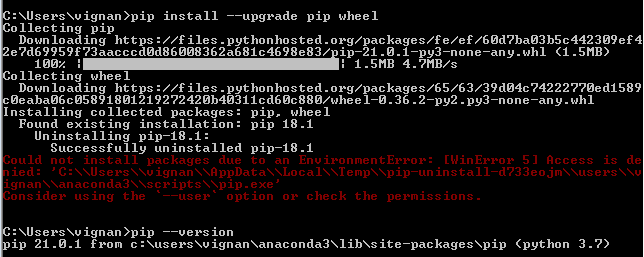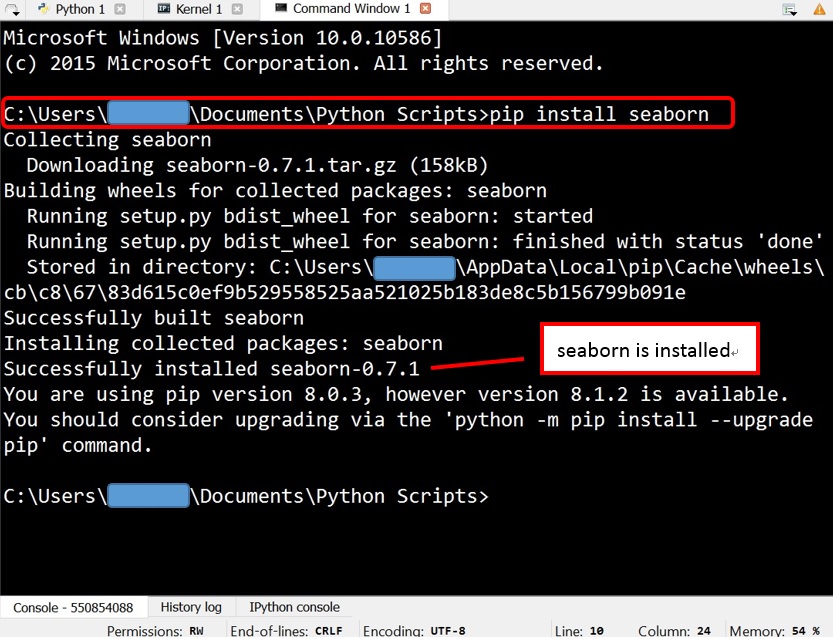Free python libraries for beginners
Free python libraries for beginners
I'm happy to respond in English just this once!
As a beginner in Python, you're spoiled for choice when it comes to free libraries that can help you get started with your projects. Here are some essential ones to explore:
NumPy: The NumPy (Numerical Python) library is a fundamental package for scientific computing and data analysis. It provides support for large, multi-dimensional arrays and matrices, along with high-level mathematical functions. Pandas: Pandas is another crucial library for beginners. It offers efficient data structures and operations for manipulating and analyzing structured data, such as tabular data (e.g., spreadsheets) or time series data. Matplotlib: Matplotlib is a popular plotting library that allows you to create high-quality 2D plots, charts, and graphs from your data. Whether it's for scientific presentations, blog posts, or academic papers, Matplotlib is the perfect tool. Scikit-learn: Scikit-learn (Machine Learning Library) provides simple and easy-to-use interfaces to a wide range of algorithms, including classification, regression, clustering, and more. You can use it to build predictive models, classify data, and cluster data points. OpenCV: OpenCV is an open-source computer vision library that offers pre-built functions for image processing, object recognition, facial detection, and many other advanced tasks. Whether you're working on a project related to robotics, self-driving cars, or AI-powered applications, OpenCV can help you get started quickly. Requests: The Requests library is perfect for beginners who want to start building web scrapers, API integrations, or simply send HTTP requests from your Python code. It's lightweight and easy to use, making it a great starting point for exploring web development. BeautifulSoup: BeautifulSoup (BS4) is another essential library for web scraping and parsing HTML documents. You can use it to extract specific data, navigate through complex structures, or even build simple scrapers. Scipy: Scipy (Scientific Python Library) offers a collection of algorithms, packages, and tools for scientific computing. From signal processing to linear algebra, optimization techniques, and statistics, Scipy has you covered.These libraries will help you kick-start your journey in Python programming. Remember, the key to mastering any programming library is practice – so go ahead and start experimenting with these tools!
basic python libraries to install

Here's a list of essential Python libraries that you should consider installing:

Math and Scientific Computing
NumPy: The foundation of most scientific computing in Python, NumPy provides support for large, multi-dimensional arrays and matrices. SciPy: A library for scientific and engineering applications, SciPy includes modules for statistics, optimization, signal processing, and more. Matplotlib: A plotting library that allows you to create high-quality 2D and 3D plots.Data Manipulation and Analysis
Pandas: A powerful library for data manipulation and analysis, Pandas provides data structures like Series (1-dimensional labeled array) and DataFrame (2-dimensional labeled data structure). Statsmodels: A statistical analysis library that includes modules for linear regression, time series analysis, and more. Scikit-learn: A machine learning library that includes algorithms for classification, regression, clustering, and more.Web Development
Flask: A micro web framework that allows you to build small-scale web applications quickly. Django: A high-level web framework that provides an elegant way of building complex web applications.Networking and System Administration
Requests: A library for making HTTP requests in Python, Requests is a popular choice for web scraping and API interactions. Socket: A library for working with network sockets in Python. Paramiko: A library for remote access to servers using SSH and other protocols.Database Management
SQLAlchemy: A database library that allows you to interact with databases using a variety of database systems, including MySQL, PostgreSQL, and SQLite. Pandas-profiling: A library for generating reports on your data using Pandas, including summary statistics and plots.Miscellaneous Libraries
Jupyter Notebook: An interactive environment for working with Jupyter Notebooks, allowing you to create and share documents containing live code, equations, visualizations, and narrative text. Pillow: A library for image processing in Python, Pillow provides support for opening, manipulating, and saving a variety of image formats. OpenCV: A computer vision library that allows you to process images and video streams.These libraries are essential for building applications in various domains, including data science, machine learning, web development, network programming, and system administration. Of course, there are many other excellent Python libraries out there, but these ones should give you a solid foundation to start with.





























